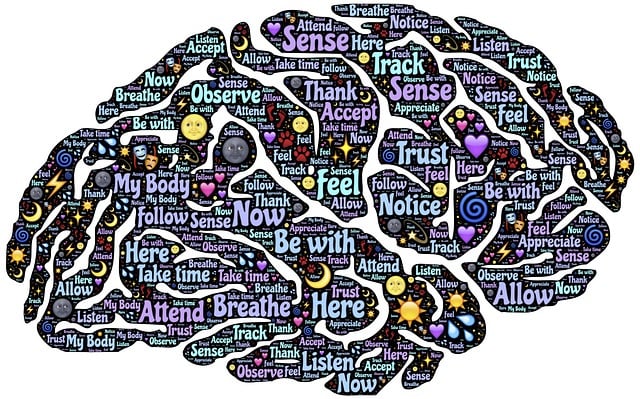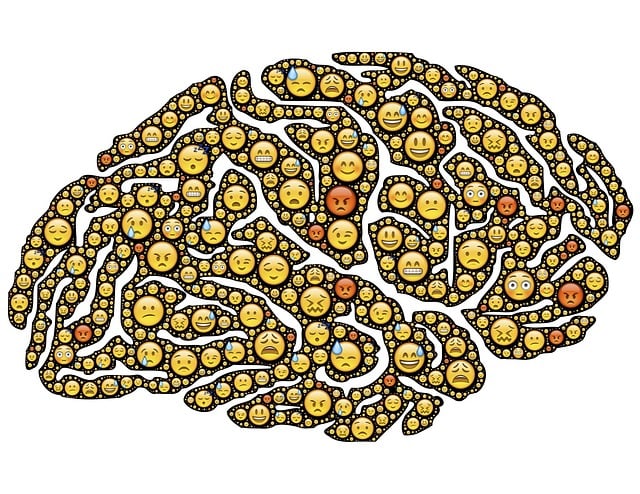Greenwood Village Acceptance and Commitment Therapy (ACT) offers a culturally sensitive approach to mental health care, prioritizing tailored treatment for diverse patients by incorporating community-specific self-care practices and empathy building. This method addresses cultural barriers, enhances treatment effectiveness, and prevents therapist burnout, as evidenced by its growing popularity in the mental wellness podcast series. Through comprehensive training and inclusive practices, Greenwood Village ACTP fosters an environment that validates diverse perspectives and adapts therapeutic techniques for optimal outcomes.
Mental healthcare practices are evolving to embrace cultural sensitivity, ensuring equitable access to quality treatment. This article explores this crucial aspect, offering insights into its significance in a diverse society. We delve into Greenwood Village Acceptance and Commitment Therapy (ACT), an approach that promotes cultural competence. By understanding cultural barriers and implementing strategies like ACT, therapists can create inclusive environments, improving patient outcomes. Identify ways to navigate these sensitive topics and learn how adopting cultural sensitivity enhances therapeutic relationships.
- Understanding Cultural Sensitivity in Mental Healthcare
- Greenwood Village Acceptance and Commitment Therapy: An Approach to Cultural Competence
- Identifying and Addressing Cultural Barriers in Therapy
- Strategies for Incorporating Cultural Sensitivity in Practice
Understanding Cultural Sensitivity in Mental Healthcare

Cultural sensitivity is a cornerstone in modern mental healthcare, ensuring that treatment approaches are tailored to meet the unique needs of diverse patient populations. It involves recognizing and appreciating the impact of cultural beliefs, values, and traditions on an individual’s mental health experiences and expressions. By embracing cultural sensitivity, mental health professionals can create a more inclusive and effective healing environment.
At Greenwood Village Acceptance and Commitment Therapy (ACT), we emphasize the importance of cultural competence in our practice. This means going beyond basic awareness to actively incorporate self-care practices and empathy building strategies that resonate with diverse communities. We understand that burnout prevention is not just an individual concern but a systemic issue that can be mitigated through culturally sensitive approaches, fostering healthier relationships between patients and healthcare providers.
Greenwood Village Acceptance and Commitment Therapy: An Approach to Cultural Competence

In the pursuit of delivering culturally sensitive mental healthcare, Greenwood Village Acceptance and Commitment Therapy (ACT) stands as a promising approach. This therapeutic method recognizes that individuals from diverse cultural backgrounds bring unique perspectives and experiences into therapy. By embracing ACT principles, healthcare providers can facilitate meaningful healing while respecting and understanding clients’ cultural identities. The process involves fostering an environment of acceptance, where patients are encouraged to embrace their thoughts and emotions without judgment, aligning with the core concept of “mind over matter.”
Greenwood Village ACT goes beyond traditional therapy by incorporating tailored mental health education programs and comprehensive provider training. These initiatives ensure that healthcare providers gain the necessary skills to navigate cultural complexities effectively. Through focused training, they learn to adapt therapeutic techniques to resonate with clients from various ethnic, racial, and socio-economic groups, enhancing overall treatment outcomes. This personalized approach is pivotal in addressing the unique challenges faced by minorities in accessing quality mental healthcare services.
Identifying and Addressing Cultural Barriers in Therapy

In navigating the complex landscape of mental healthcare, understanding and addressing cultural barriers is an indispensable component of effective therapy. Greenwood Village Acceptance and Commitment Therapy (ACT) recognizes that individuals from diverse cultural backgrounds bring unique perspectives, experiences, and communication styles to therapy. These differences can significantly impact the emotional healing processes, making it crucial for therapists to be attuned to these nuances. By actively listening and cultivating cultural sensitivity, therapists create a safe and supportive environment where clients feel heard and understood.
This approach involves recognizing implicit biases, educating oneself about various cultural practices and beliefs, and adapting therapeutic techniques accordingly. Therapists must be willing to delve into the intricate web of their clients’ lives, exploring how social, historical, and familial influences shape their mental wellness. Incorporating these insights into therapy sessions allows for more tailored interventions, fostering genuine connections and enhancing the overall effectiveness of treatment, as evidenced by the growing popularity of Mental Wellness Podcast Series Production focused on cultural sensitivity in mental healthcare.
Strategies for Incorporating Cultural Sensitivity in Practice

Incorporating cultural sensitivity into mental healthcare practice is a multifaceted approach that requires intentional strategies. At Greenwood Village Acceptance and Commitment Therapy (ACTP), we emphasize understanding and respecting diverse cultural backgrounds, beliefs, and values to foster an inclusive environment. This begins with thorough training on cultural competency, encouraging therapists to explore their own biases and learn about various cultural practices and traditions.
Additionally, actively listening to clients’ stories and experiences, validating their perspectives, and adapting therapeutic techniques accordingly are essential. We promote open dialogue, ensuring that clients feel heard and understood. By integrating these strategies, ACTP aims to enhance the effectiveness of treatment, support better outcomes, and prevent issues like burnout among healthcare professionals, especially when addressing stressors related to Stress Management and Burnout Prevention, while upholding robust Cultural Sensitivity in Mental Healthcare Practice.
Incorporating cultural sensitivity into mental healthcare practice is no longer a consideration but a necessity. As seen through approaches like Greenwood Village Acceptance and Commitment Therapy, recognizing and respecting diverse cultural backgrounds can significantly enhance therapeutic outcomes. By identifying and addressing cultural barriers, healthcare providers can create safer, more inclusive environments that foster trust and understanding. Adopting strategies to integrate cultural sensitivity into practice not only benefits individual clients but also promotes equity and excellence in mental healthcare services overall.














